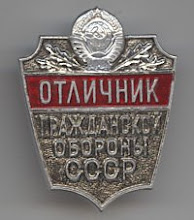The government plans to send senior officials to Moscow for final-stagenegotiations on concluding a bilateral civil nuclear cooperation agreement with Russia, government sources said Saturday.
The move, which could happen later this month, is part of efforts to settle the matter before Russian Prime Minister Vladimir Putin visits Japan, taking into consideration that Putin is placing importance on energy. No date has been set for the trip.
The plan expected to pave the way exporting a modern nuclear power plant to Russia. The Japanese government's initial plan was to conclude the deal if Putin visited Japan by the end of 2008. But the visit was scratched by the global financial crisis, and the talks remain in limbo.
In past negotiations, Japan and Russia have clashed over involvement by the International Atomic Energy Agency. Japan is demanding the agency conduct a "strict examination" of Russia's nuclear facilities to confirm the plant will be used for peaceful purposes. Russia showed reluctance by insisting the country is already a nuclear power, the sources said.
Since Japan will field its own candidate this fall to take over the U.N. nuclear watchdog, the government is expected to continue to press Russia to accept the demand so it can gain support from other countries in the election.
The idea of Russia importing Japanese nuclear power plants is an old one--it was first floated in the 1970s when the USSR was experiencing great difficulty building VVER-1000 pressure vessels. My guess, however, is that Russia may be interested in acquiring more modern technology to bolster their nuclear export business. Currently, Rosatom can only sell its reactors to former Soviet satellites and developing countries. But if Rosatom licensed more modern technology, it could conceivably market its wares in the first world while undercutting Japanese and European vendors on price--potentially winning profitable new markets for Russia, while avoiding the need to develop a new LWR itself.
Note that Russia's primary next-generation reactor effort--the BN-series liquid-metal fast breeder--cannot be exported for proliferation reasons, in addition to the fact that it will probably prove economically uncompetitive with LWRs. So the royal road for Russia to compete in the global nuclear reactor market in the intermediate term is to import foreign technology. (Note that China and Britain are basically doing the same thing with their plans to start building AP1000s domestically). Especially worrisome (for Rosatom) is that cost trends suggest that its latest version of the VVER-1000 is probably going to be only slightly cheaper than reactors like the AP1000, so it really needs to come up with a strategy to compete in the global nuclear market after the 2020 time frame. But I'm not quite sure what's in it for the Japanese.

No comments:
Post a Comment